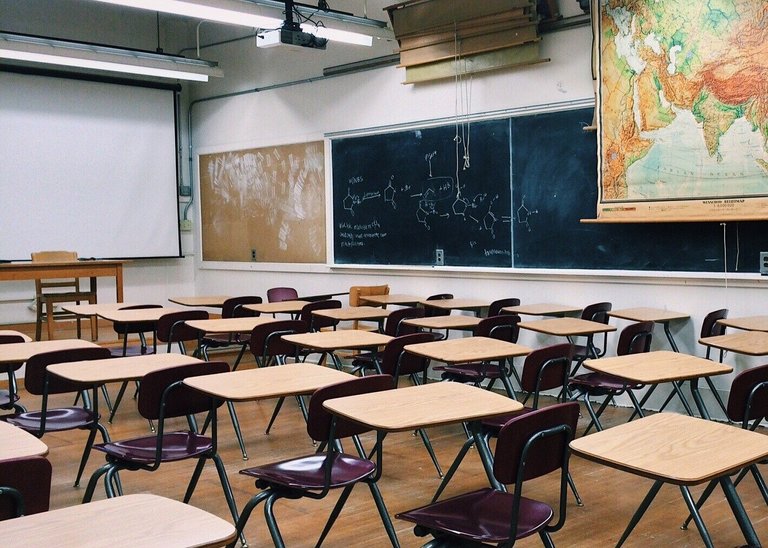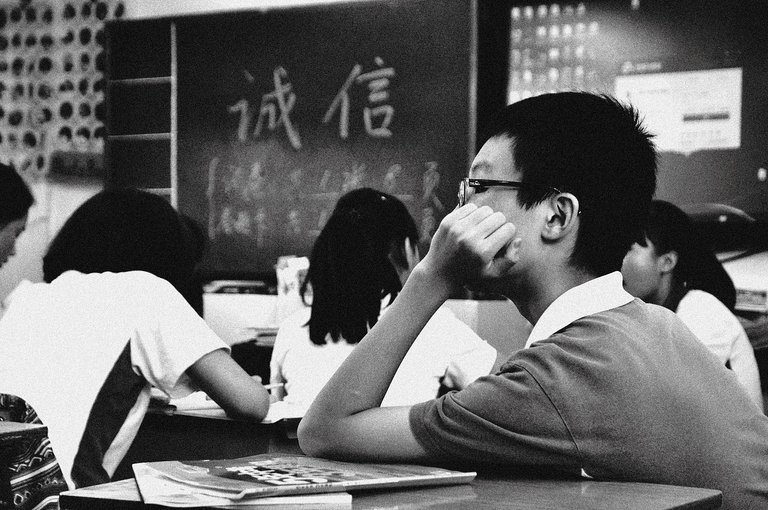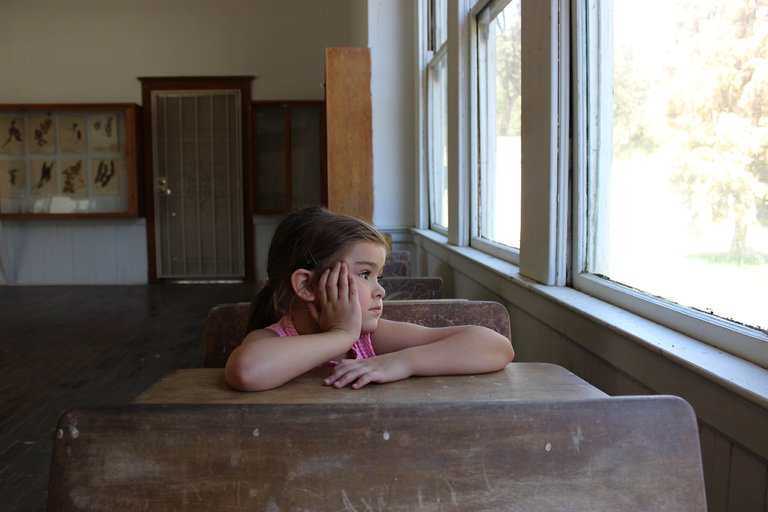
Source: pixabay.com
When resuming activities in different schools, in the case of countries whose laws do not allow homeschooling, important aspects of integrating students into the hard routine of classroom sessions must be considered. In the case of the youngest students, we will find difficulties in establishing school routines, schedules and consecutive dedication to school tasks that attend more to the class program than to the skills, abilities and capacities to be developed.
The emotional factor is very affected by the pandemic, many of the children and young people who resume their school activities come from a strict isolation and in some cases of loss of parents, relatives and friends. It is not a matter of returning as if nothing had happened, because what happened was really very serious and changed us completely, we must learn to manage our emotions. There are many people who have manifested depression, sadness, anxiety and many negative emotions after the pandemic, especially children. All this affects the cognitive development process and emotions intervene positively or negatively in learning.

Source: pixabay.com
Cognitive regression, there are studies that prove that the pandemic and isolation brought with it a cognitive regression in almost all children and young people who were in school. This is due to the fact that parents who were not prepared to assume the education at home or were in a difficult situation due to the health issue neglected the educational aspect, this is understandable, all of us who had to fight against the virus had nothing else to think about but our health. It's not an excuse, but across the board whether you like it or not, there was a period of the pandemic where people just didn't care about education or learning.
Cognitive regression was evidenced when students returned to the educational institutions and in the diagnostic tests they were not at the level or grade that corresponded to their age, there is even talk of children who regressed up to two grades. This implies opting for a different educational action by adopting new strategies. The processes associated with socialization such as the development of communication skills and interpersonal relationships are quite atrophied, today we have children who find it difficult to talk to their peers or create bonds of friendship because they spent years emphasizing that we should stay away from others.

Source: pixabay.com
These aspects and many others lead us to rethink education and the ways in which educational practices are developed. Post-pandemic education strategies must include educational technologies and alternate traditional practices with flexible strategies that adapt to the needs of students.
Make school day schedules more flexible. Have the support of specialists in the management of emotions and conflicts that may arise in the cases of children who require support. Generate creative learning strategies that are adapted to the needs of each student. And most especially, we must humanize education, today's educational institutions have a great challenge in terms of human rights, equality, ethics and values.
Authors of the free images at pixabay.com:
Image 1. Wokandapix
Image 2. ken19991210
Image 3. Koko Coley

Una mirada a la educación post pandemia.

Fuente: pixabay.com
Al retomar las actividades en los diferentes centros escolares, en el caso de los países cuyas leyes no admiten la educación en casa, se deben considerar aspectos importantes de la integración de los estudiantes a la dura rutina de las sesiones de clase. En el caso de los más pequeños vamos a encontrar dificultades en el establecimiento de las rutinas escolares, de los horarios y de la dedicación consecutiva a las tareas escolares que atienden más al programa de clase que a las habilidades, destrezas y capacidades que se deben desarrollar.
El factor emocional se encuentra muy afectado por la pandemia, muchos de los niños, niñas y jóvenes que retoman sus actividades escolares vienen de un estricto aislamiento y en algunos casos de pérdidas de padres, familiares y amigos. No se trata de volver como si nada hubiese sucedido, porque realmente lo que pasó fue muy grave y nos cambió por completo, debemos aprender a gestionar nuestras emociones. Hay muchas personas que han manifestado depresión, tristeza, ansiedad y muchas emociones negativas luego de la pandemia y muy especialmente los niños. Todo esto afecta el proceso de desarrollo cognitivo y las emociones intervienen positiva o negativamente en el aprendizaje.

Fuente: pixabay.com
El retroceso cognitivo, existen estudios que comprueban que la pandemia y el aislamiento trajo consigo un retroceso cognitivo en casi todos los niños, niñas y jóvenes que se encontraban escolarizados. Esto se debe que los padres que no estaban preparados para asumir la educación en casa o se encontraban en una situación difícil por el tema salud descuidaron el aspecto educativo, esto es entendible, todos los que pasamos por tener que luchar en contra del virus no teníamos más en que pensar sino en la salud. No es una excusa, pero de forma general se quiera o no, hubo un periodo de la pandemia en los que a las personas simplemente no les importó la educación o el aprendizaje.
El retroceso cognitivo se evidenció cuando los estudiantes regresaron a las instituciones educativas y en las pruebas diagnósticas no se encontraban en el nivel o grado que correspondía a su edad, se habla incluso de niños que retrocedieron hasta dos grados. Esto implica optar por una acción educativa distinta por adoptar nuevas estrategias. Los procesos asociados a la socialización como el desarrollo de las habilidades comunicativas y las relaciones interpersonales se encuentran bastante atrofiadas, hoy tenemos niños a los cuales les cuesta hablar con sus compañeros o crear lazos de amistad porque fueron años haciendo énfasis en que debíamos alejarnos de los demás.

Fuente: pixabay.com
Estos aspectos y muchos otros nos llevan a repensar en la educación y las formas en las cuales se desarrollan las prácticas educativas. Las estrategias de la educación post pandemia debe incluir las tecnologías educativas y alternar las prácticas tradicionales con estrategias flexibles y que se adapten a las necesidades de los estudiantes.
Flexibilizar los horarios de la jornada escolar. Contar con el apoyo de especialistas en el manejo de las emociones y de los conflictos que se puedan presentar en los casos de los niños que requieran apoyo. Generar estrategias de aprendizaje creativas y que se adapten a las necesidades de cada uno de los estudiantes. Y muy especialmente, debemos humanizar la educación, hoy las instituciones educativas tienen un gran reto en cuanto a los derechos humanos, la igualdad, ética y valores.
Autores de las imágenes libres en pixabay.com:
Imagen 1. Wokandapix
Imagen 2. ken19991210
Imagen 3. Koko Coley
